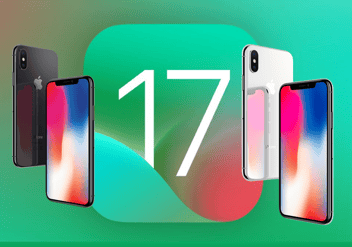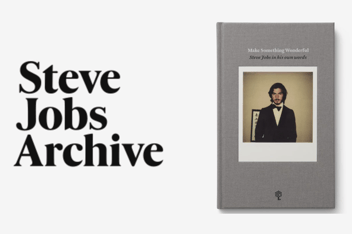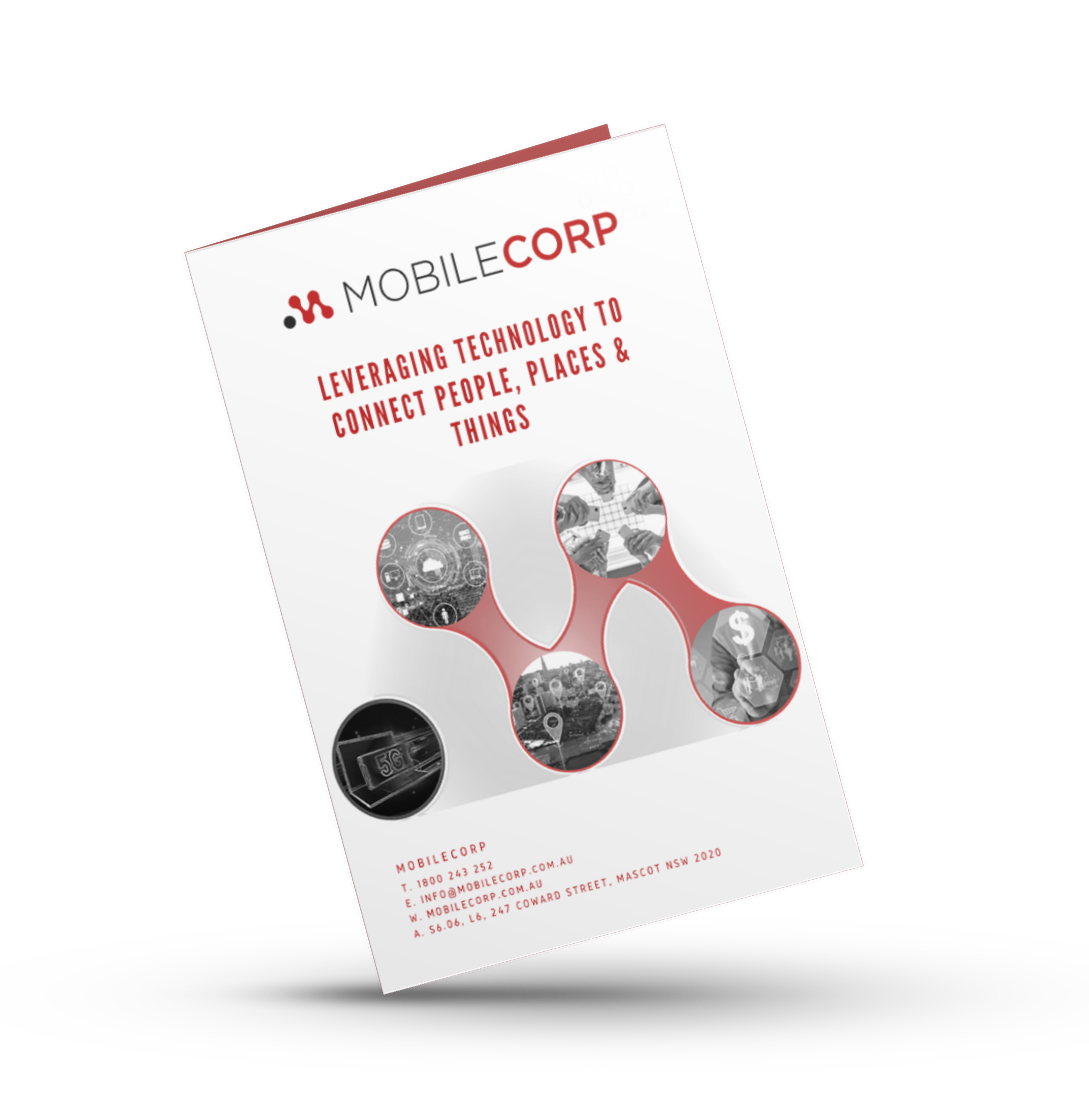From mid-2024, all mobile devices sold in the European Union will be required to have a single standard USB-C charging port, forcing Apple to move away from its Lightning connector.
The reform was passed by an overwhelmingly majority in the European Parliament last week, and will apply to 13 electronic devices including e-readers, ear buds, tablets, digital cameras, headphones and headsets, handheld video-game consoles, portable speakers, and other accessories; with laptops also required to comply by 2026.
The new legislation sets the USB-C connector as the universal standard across the 27 European nations.
Apple will be the most affected device manufacturer
Apple will be impacted the most by the move, with all of its iPhones and its AirPods, Apple TV remote, the MagSafe battery pack, and the MagSafe Duo charger all currently using its proprietary Lightening connector. All Macs and most iPads have already moved to USB-C.
There’s also a wide range of third-party accessories, such as chargers, car adapters and external microphones, that use the existing Lightning connector. The switch will force third-party providers to redesign their products.
The Lightening charging cable was introduced over ten years ago in 2012 with the launch of the iPhone 5, and has been a key component in tying consumers into the Apple ecosystem ever since.
It has been a foundational product in Apple's MFi - Made for iPhone/iPad - program of certified accessories, and a lucrative revenue stream for the company.
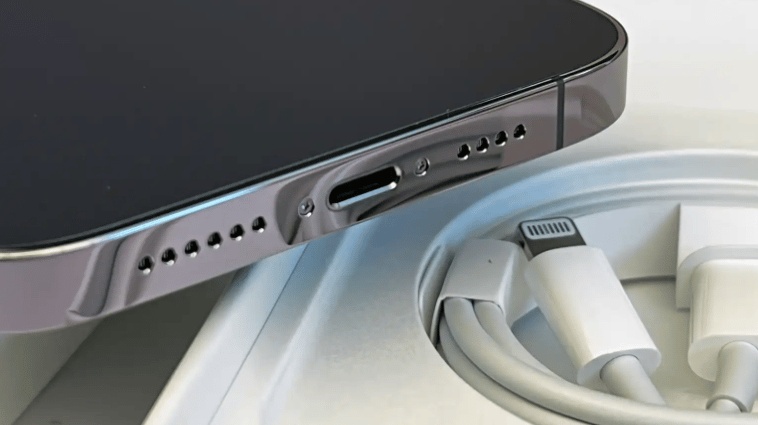
A long time coming
This reform is no surprise to the industry given it has been signalled for more than 12 years. As far back as 2010, the European Commission began pushing for voluntary adoption of a common charger. The move then was prompted by complaints from consumers about having to switch between different chargers for iPhone and Android devices.
Over recent years, the compelling argument has shifted from a sole focus on the cost to consumers, to also consider the cost to the planet with the differing standards contributing to unnecessary electronic waste.
When Apple removed its wall charging unit from 'the box' of the iPhone 12 in 2020 and touted its sustainability, many industry observers saw the move as an attempt to stall the EU legislation.
EU is forcing Apple to "do the right thing"
Former Apple VP Tony Fadell, who is largely credited with being the 'father of the iPod,' has said on Twitter that the EU is "simply forcing Apple to do the right thing” and "frankly it's overdue."
In another tweet, Fadell said that the regulation only happened because Apple has a monopoly-like position and standardisation is necessary, but companies are not always interested in doing the “right thing for societies best interest.”
He also tweeted that forcing Apple to change the iPhone connector based on the environment argument is a "lot easier than a monopolistic legal trial.”
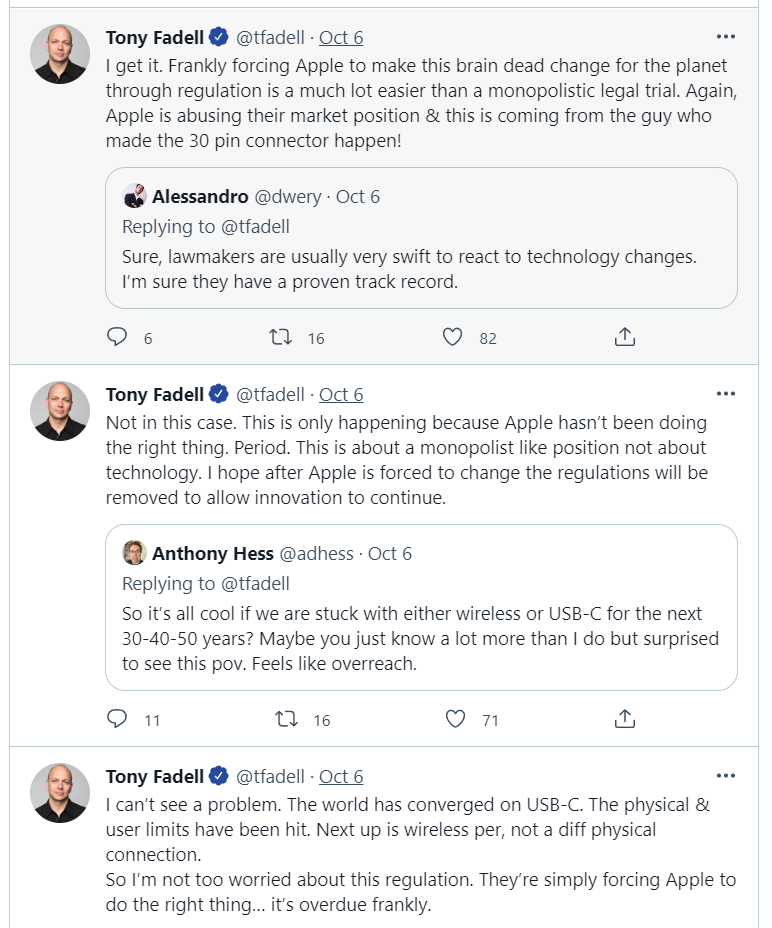
Finally, he called out Apple for having to be forced into action, and pointed out the company's poor track record for being proactive about making changes that would be good for consumers and the planet.

Will it really help reduce ewaste?
Apple has long argued that the move to standardise charging ports will not reduce ewaste - it will increase it.
Apple has claimed the new legislation will hurt innovation and create a mountain of electronics waste.
However the EU has said there will be a gradual phase out so that consumers can continue to use older devices.
There are also many other actions that can be taken to reduce ewaste. Making products easier to refurbish so that they don’t become obsolete after a few years is another major focus for legislators. Apple’s AirPods, for example, tend to have a shorter shelf life than traditional headphones because it’s so hard to replace the lithium-ion battery inside.
Blog: How to save on a mobile fleet refresh and save the planet at the same time
Web: MobileCorp End of Life Management Program
How will this new legislation affect Australia?
The subject of legislating for a standardised charging port has not been a topic that has been given political airtime in Australia, however we are still likely to see changes, perhaps as soon as the launch of the iPhone 15 next year.
It is possible that Apple could manufacture iPhones specifically for the EU market with the USB-C port and stay with the lightning port for Australia and other markets. We have seen a similar change with the iPhone 14 models in the United States having no physical SIM tray but the tray being retained for all other markets.
However, in the case of the charging port, this approach seems unlikely. The Lightning connector is already close to retirement as dated technology, and separate models for separate markets would also cause issues with supply chain and would confuse consumers.
In May, Bloomsberg reported that Apple is already working on an iPhone with a USB-C charging port.
Renowned Apple analyst Ming-Chi Kuo agrees that Apple will abandon the use of Lightning, tweeting that USB Type-C connectors will be launched in the second half of 2023.
Apple also has worked on iPhones without any charging port at all, promoting its MagSafe wireless charging system released in 2020. However, it is unlikely that a wireless only device will be released just yet as wireless connections are often slower at charging a phone’s battery and don’t sync data with other devices as quickly. It’s also not practical in all situations, such as in some cars.
About MobileCorp
MobileCorp is an Australian communications technology company, based in Sydney, specialising in 5G and wireless WAN, and Managed Mobility Services, Data and IP Networks, and Unified Communication solutions. We have a proven track record providing solution architecture, build, deployment, and managed services for Australian enterprise and business. We are a Telstra Platinum Partner and have been a Telstra enterprise and business partner since 1988.
iPhone Michelle Lewis 09 Oct 2022
Related Posts
Popular Tags
- Mobility (80)
- Mobile Devices (79)
- Telstra (65)
- 5G (60)
- MobileCorp Managed Services (55)
- Mobile Network (34)
- Networks (34)
- Cradlepoint (31)
- Apple (29)
- MobileCorp (29)
- iPhone (25)
- Remote Working (23)
- Covid-19 (16)
- Network (16)
- Mobile Security (15)
- Wireless WAN (15)
- Cyber Security (14)
- UEM (14)
- MDM (11)
- Mobile Expense Management (10)
- Mobile Device Management (9)
- TEMs (9)
- Mobile Device Lifecycle (8)
- Cloud (7)
- Unified Comms (7)
- Unified Communications (7)
- Wandera (7)
- Android (6)
- Sustainability (6)
- Data Networks (5)
- Network Security (5)
- Samsung (5)
- Security (5)
- Digital Experience (4)
- IOT (4)
- Microsoft Intune (4)
- IT Services (3)
- Microsoft (3)
- Data (2)
- Government (2)
- Microsoft 365 & Teams (2)
- Retail (2)
- nbn (2)
- webinar (2)
- Blog (1)
- EMM (1)
- Emerging Technologies (1)
- Hosted Telephony (1)
- Managed Desktops (1)
- SD-WAN (1)
- Starlink (1)
- Telstra Services (1)
- video (1)




